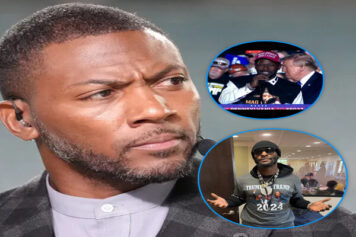How is it that so many of us were unaware that this happened?
“My people perish for a lack of knowledge” – Hosea 4:6
The Old Testament verse kept replaying in my head as I sat back and watched some of the reactions from Black America on social media as they viewed and commented on Ava DuVernay’s Netflix miniseries “When They See Us” about the Central Park Five.
And as quickly as the scripture stopped playing on repeat in my mind, it was replaced by a question that left me concerned.
How is it that so many of us were unaware that this happened?
I have seen headlines about why the movie should be considered a horror film instead of a crime drama, and get that some of us just aren’t emotionally ready to absorb almost five hours of a true and gut-wrenching story about what the “justice” system did to five innocent black and brown boys.
However, we don’t have that choice. Because pretending like these kinds of things haven’t always happened, and still happen, isn’t going to change things for us in the future.
You can’t hope for things to get better until you truly grasp just how bad they’ve been.
Being able to see what Antron McCray, Kevin Richardson, Yusef Salaam, Raymond Santana and Korey Wise unjustly endured on film takes everything we’ve ever known about the Central Park Five to a new level. The incredible acting, cinematography and storytelling told the story that the mainstream media so conveniently missed.
“I haven’t healed yet. I’m still trying. It’s gonna take a long time,” said Jharrel Jerome about portraying Korey Wise. “Just knowing this story and having it in my head and now having it part of my soul and part of my heart, it’s going to continuously be my lesson, it’s going to be what I look up to as a beacon of faith and hope.”
But, it’s not like we haven’t been here before.
https://www.youtube.com/watch?v=u3F9n_smGWY
Emmitt Till.
Oscar Grant.
Sandra Bland.
Eric Garner.
Trayvon Martin.
Mike Brown.
Tamir Rice.
Philando Castile.
Terence Crutcher.
In 1921, we experienced the Tulsa race riots as “Black Wall Street” was decimated all because black people were thriving and winning at life.
In 1985, the Philadelphia Police Department dropped an actual bomb on a neighborhood, killing 11 people, including five children, and destroying over 60 homes in hopes of taking out the black liberation group known as MOVE.
In 2014, the Flint Water crisis began. And I say began because it’s still going on. Earlier this week, former Michigan Gov. Rick Snyder and 65 other current or former officials had their state-owned cell phones, computers and tablets seized due to the investigation as much of the city is still without clean water.
And in 2016, 53% of white women and over 60% of white men voted for Donald Trump to be president. The same man that spent $85,000 on full-page ads in four New York City newspapers calling for the death penalty for the Central Park Five.
“BRING BACK THE DEATH PENALTY. BRING BACK OUR POLICE,” read the headline in all caps, as Trump also wrote an Op-Ed that read, “I want to hate these murderers and I always will. I am not looking to psychoanalyze or understand them, I am looking to punish them.”
The leader of the free world has still yet to apologize.
From the middle passage to slavery, to sharecropping, to segregation, to the Civil Rights Movement, to Black Lives Matter and all the names and instances I listed, and didn’t list, and even to a football player that’s still being blackballed from the NFL, America has always vividly proven to us how they really feel about black folks.
We now live in an information age where technology has given us the ability to gather and research the past like never before. Which means that there are no more excuses, especially when we’re in a moment in which our stories are being portrayed on the small and big screen for the world to see like never before.
So while “When They See Us” may be a hard watch, it’s also a necessary watch. Because believing that something like that could never happen again is the perfect catalyst for repetition.
Besides, it’s like the good book said.
“My people perish for a lack of knowledge.”



